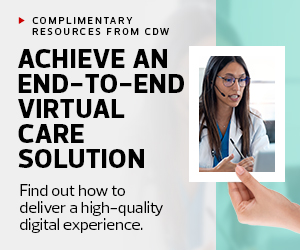How Today’s Healthcare Landscape Is Hindering Access to Care
It can be difficult for many patients in rural areas and medical deserts to access specialty care where they’re located, let alone a second opinion. And some patients may not have the resources to travel easily to the closest hospital with a doctor who can meet their needs. In addition, older adults, patients with disabilities or patients experiencing severe pain may be unable to travel to a Cleveland Clinic location for a second opinion. Even patients in Ohio may have difficulty scheduling appointments.
“It’s becoming more and more challenging to access healthcare anywhere in the U.S. because there are complicated systems and phone trees that people have to navigate,” said Rasmussen. “Patients don’t know which physician is the right one to see, or they might not even have a physician in their community.”
For some conditions, such as epilepsy in children, there is a lack of sophisticated care in many countries. Rasmussen pointed out that many children end up taking several medications that impede their ability to function.
“A lot of these kids can be helped with surgery to become seizure-free, get off the medications, have a higher quality of life and become much more productive members of society,” he said. “To that end, the Cleveland Clinic has contracted with countries for epilepsy care. Providing access to that level of expertise for people who wouldn’t otherwise have it is the main goal of the program.”
EXPLORE: How to keep equity at the forefront in telehealth.
Expanding Healthcare Access and Reducing Costs Through Telehealth
The Clinic’s virtual second opinion program offers patients the opportunity to connect with a Cleveland Clinic expert who has been briefed with the patient’s medical records and imaging. Since the program’s launch in January 2020, approximately 80 percent of opinions handled by The Clinic come from the U.S. market, and about half of the second opinions are related to heart, cancer and musculoskeletal conditions. However, the organization also handles opinions for patients with neurological, digestive, urological and other conditions.
“What we’re finding is that, about a quarter of the time, we’re changing the diagnosis. About three-quarters of the time, we’re making alterations to their treatment plan,” said Rasmussen, who explained that they’ve been able to help patients who were told by their local team that they were inoperable or had no options.
Tweet: #HealthEquity is a growing focus for healthcare organizations nationwide. Dr. Peter Rasmussen of The Clinic by @ClevelandClinic explained at #ViVE2023 how its virtual second opinion program increases access to care. pic.twitter.com/6dm1LQRVPX
— HealthTech Magazine (@HealthTechMag) March 28, 2023
In addition to the benefits for patient health, the program is also reducing costs for patients and insurance companies.
“On average, when we do recommend treatment changes, we’re saving the payer or the patient about $12,000,” said Rasmussen. “In some areas, such as musculoskeletal, in which there tends to be a heavy overuse of surgery, we’re actually saving about $36,000 for a consult.”
The Clinic mostly relies on video visits with patients using an Amwell platform to provide a second opinion, but in cases where the patient doesn’t prefer a video connection, or if they’re overseas in an area with low broadband, The Clinic also offers written reports or telephone calls.
What’s Next for The Clinic by Cleveland Clinic?
Going forward, Rasmussen explained that the organization plans to contract directly with payers and employers because the “correct care is the least expensive care.”
“We know we save the payers a lot of money, on average, when we recommend treatment changes. It’s a wonderful benefit that the payers can offer their members because they’re giving essentially free or very-reduced-cost access to Cleveland Clinic experts without having to travel,” he said. “A lot of the payers are coupling that second opinion with a travel benefit so that, if patients decide they want to receive follow-up care at Cleveland Clinic, the cost of air travel and hotels will be covered.”
The Clinic is also developing programs to offer remote management of chronic disease because many patients seeking second opinions ask if the program also delivers treatment. The Clinic can’t current treat patients due to regulatory barriers, but Rasmussen hopes to launch a new component of the program in the coming months.











